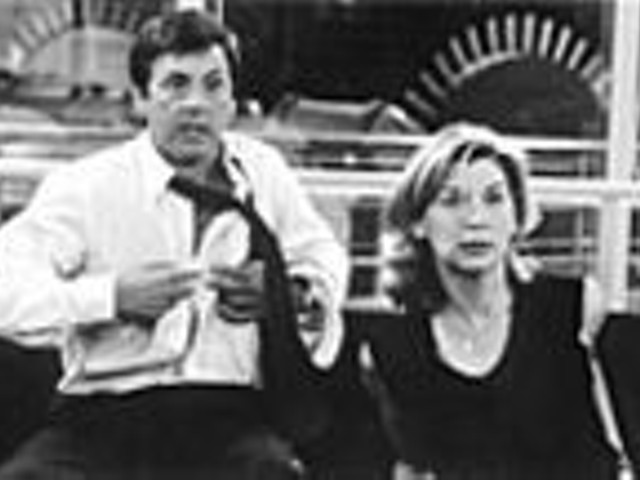When artist Henry Hart (Arye Gross) gets a phone call on the eve of his new gallery opening, informing him his grandfather (George Coe) has suffered a stroke, his upset is tempered by a subtle sense of relief. Henry is the sort of mild, unassuming gay guy that women pals are constantly trying to fix up with Mr. Right, to no avail. Clearly Henry wasn't meant for big-city life. The minute he heads home to help his grandpa, it's apparent why he left in the first place. It's not that the mythical burg of Big Eden, Mont., is a hotbed of homophobia (it's every bit as open and welcoming as Cicely, Alaska, of the late, beloved TV series Northern Exposure). What's got Henry bewitched, bothered and bewildered is his old friend Dean (Tim DeKay), a divorcé with two sons in his charge and the reason Henry left town to begin with. Although he is by no means gay himself, Dean always counted on Henry for the emotional support he couldn't find elsewhere. Because Dean could never reciprocate Henry's love physically, there was no place for the relationship to go. But with Henry's return to town, it is clear that Dean wants it to go on anyway -- in the same frustrating fashion.
Meanwhile, frustration of another sort looms with Pike (Eric Schweig), the large, darkly handsome and cripplingly shy owner of the local store who's madly in love with Henry and so completely unhinged by the prospect of dealing with his feelings that he's barely able to tolerate being in the same room with him. An opportunity to work things out arises when Pike is assigned by the Widow Thayer (Nan Martin), the local grande dame, to deliver home-cooked meals to Henry's grandfather. Because our hero and the widow are both culinarily challenged, Pike begins to whip up all manner of healthy meals in their stead. Being the sort of close-knit community where everyone is aware of everyone else's business, even if they're not particularly nosy or meddling, the community soon catches on to Pike's passion for Henry and delicately conspires to bring the two men together.
This makes for gentle, comic fun, and, happily, it doesn't take away from the film's most powerful scenes. In one of them, Dean breaks down in tears over his inability to connect with Henry in a manner that can only be called normal. For any gay man who has ever been strung along by a straight buddy whose emotional demands were greater than his ability to translate them into action, this rings frighteningly true. Complementing this scene is a shot toward the end of the film of Pike standing in the background of his shop, aching with love for Henry, who, just at that moment, begins to recognize it. This is just as true, and dramatically astute as well. But the moment isn't writer/director Bezucha's alone. It belongs to his actors -- Schweig and Gross. Especially Gross.
A New Hollywood veteran, Gross has usually played sidekick roles alongside everyone from John Travolta in The Experts (the nadir of the megastar's career before Battleship Earth) to Ellen DeGeneres on These Friends of Mine (the first incarnation of the Ellen show). Gross has always exuded a sense of the everyman and the nice guy. But if nice guys finish last, it can't be said to have been his fault. What's to blame is the inability of writers and directors to see that such qualities have genuine dramatic possibilities. "Nice" should never be confused with "dull." And once you realize that, as Bezucha has done here with Gross, you can make "nice" finish in first place.





